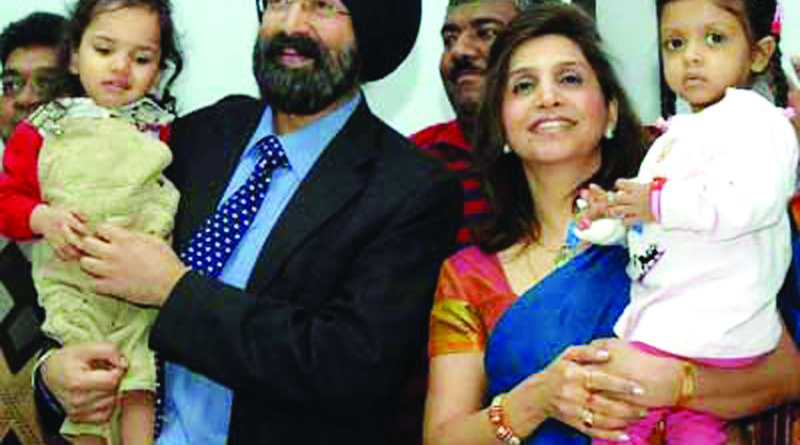Liver Transplants now possible with blood group mismatched donor
By Dr Neelam Mohan
Due to extreme shortage of cadaveric organ donation, the present liver transplant programme in many developing countries including India is predominantly living related donor transplantation (LRDT). In this scenario, donors are usually restricted to family members. Hence it is not always possible to find a timely healthy blood group-compatible donor. Liver transplantation across the ABO barrier is a promising alternative in such patients.
The main hurdle in incompatible liver transplant (ILT) is the presence of naturally occurring blood group-related antibodies in circulation ( Eg: O Blood group individual has anti-A & anti-B antibodies). In ILT blood group antigens on the donor-organ are recognised by the recipient leading to graft rejection,vascular and biliary complications.
Blood group-related antibody production begins in post-neonatal period and peaks at 8- 10 years of age. The peri-infancy period is advantageous for ILT due to naturally occuring low antibody titres & immature complement system. Hence aggressive immunosuppression can be avoided in the age-group for successful graft uptake with reduced.
Blood group antigens are present on vascular endothelium and bile duct epithelium which possibly lead to vascular and biliary complications. There is increased incidence of ischemic cholangitis, bile leak & stricture formation, and hepatic artery thrombosis in ILT. Effective immunosuppression is vital to reduce above complications.
In order to make the patient accept such a liver (of a different blood group), these antibodies must be removed by a 3-pronged strategy, which starts one month prior to transplant. First, the antibodies are removed from the patient’s body by washing the entire blood by several plasma exchanges. Second, we use 2 drugs called mycophenolate and anti-CD 20 to suppress the antibody-producing plasma cells, and third, intravenous IVIg is given to neutralise any remaining antibodies. This is then followed by the transplant with zero-error precision surgery to avoid blood vessel and bile duct problems, to which these patients are very susceptible.
Our Liver Transplant team at Medanta the Medicity Hospital, Gurgaon for the first time have ushered an era of successful ABO-mismatched transplantation in India from 2012. Zuana was in terminal liver failure, with no hope of survival without a transplant. She was in coma and on ventilation for 10 days and then got out of it. Her parents were desperate to save her. Zuana’s blood group was O and the blood groups of all 3 medically suitable family donors did not match with her. We then decided to offer her ABO-incompatible transplantation using 20% of her grandmother Naseema’s liver who was of blood group- A. This was for the first time in India that we were doing such a procedure. Fortunately all went well. Subsequently, we have done such ABO imcompatible 6 children and 15 adults with excellent result.
The approach in Transplant is directed towards reducing antibodies pre-transplant and inhibiting its production post-transplant for at least 2-3 weeks, after which the graft seems to be resistant to increases in antibody titers. ‘Accommodation’ sets in, which is the ability of the graft to survive despite of presence of anti-graft antibodies and complement.
We have completed nearly 250 pediatric liver transplants and are the busiest liver transplant centre in India with overall 1 year survival rate 94% and 5 year actuarial survival was 87% with median age 5 yrs ( 2 months -9.6 yrs) and Median weight 16 kg (2 kg – 60 kg).
(The author is Director, Department of Pediatric Gastroenterology, Hepatology & Liver Transplantation, Medanta Super Speciality Hospital, Gurgaon)

